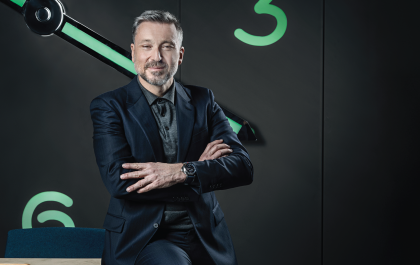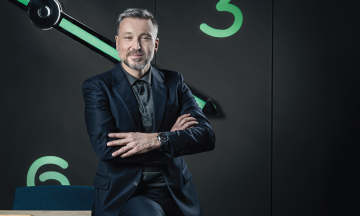Starting her journey from the bustling streets of Dhaka cantonment and hailing from an army family, Nusrat Faria Mazhar has now emerged as a luminary star in our showbiz, casting a spell with her grace and multifaceted talents. As an actor, singer, and empowering figure, she embodies the spirit of modern entertainment – diverse, inclusive, and limitless
By Anika Chowdhury
In every film, every song, and every step she takes, Nusrat Faria Mazhar leaves an indelible mark, reminding us that true stardom is not just about fame but the ability to inspire and uplift others
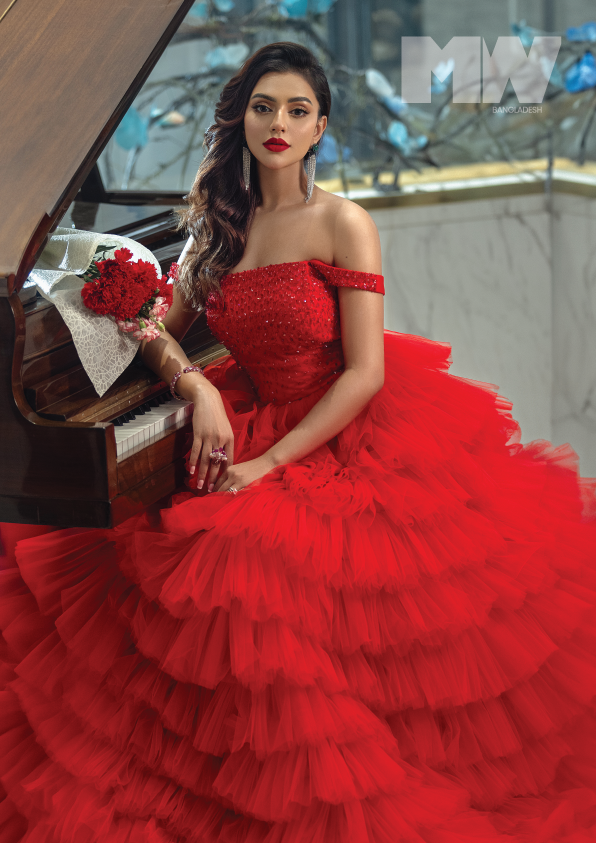
What one may not know is that Faria’s foray into the limelight began as a debater, showcasing her eloquence and wit on a BTV debate show, where she emerged victorious as the national debate champion in 2010 and 2011. This early exposure to the stage laid the foundation for her future in the entertainment industry.
Faria’s transition into the world of radio and modelling was seamless and marked the beginning of her ascent. With the finesse of a maestro, she took on the roles of RJ, TV show host, and model, impressing audiences with her charm and talent. Her magnetic presence and captivating voice made her a sought-after figure in the industry.
Contrary to the stereotypical image of a showbiz personality, Faria pursued higher education, earning her law degree. Her tenacity and dedication shone through as she navigated the challenging terrain of legal studies. A law graduate with a defiant spirit, Faria defied expectations and showcased her intellectual prowess.
The list of Faria’s accomplishments reads like a chronicle of triumphs. Her debut film Aashiqui (2015) earned her a Meril Prothom Alo Award. Subsequently, she adorned the silver screen with her presence in acclaimed movies such as Hero 420 (2016), Badsha – The Don (2016), Premi O Premi (2017) and Operation Sundarbans (2022).
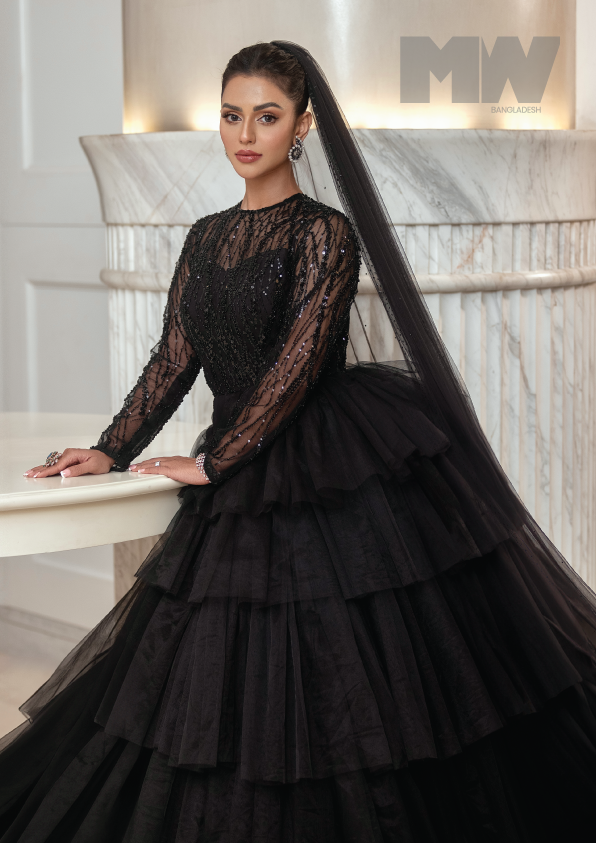
Faria left audiences spellbound with her performance in Mujib (2023) where she played the challenging role of Prime Minister Sheikh Hasina – earning Nusrat Faria Mazhar acclaim for her nuanced portrayal and magnetic on-screen presence.
Beyond her acting prowess, Faria is a musical muse, enchanting listeners with her soul-stirring voice. In recent times, she has not only graced the silver screen but also the music scene. All in all, Nusrat Faria Mazhar is an all-rounder. From her early days as a debater to her current status as a celebrated actor and model, she has not just conquered the entertainment industry but has also broken stereotypes and inspired many young and aspiring performers.
Over a candid chat with MWB, the graceful Nusrat Faria Mazhar shared glimpses of her life, aspirations, and the intricacies of her journey in the entertainment industry – allowing readers to witness the person behind the persona.
You grew up in an army household. Could you tell us a little bit about your childhood and the experience you had as a debater?
I grew up in Dhaka and have always been a city girl. My grandfather was in the army and my family has been here since 1985. I was born in the Dhaka Cantonment. So, I know the alleys and corners of the cantonment like the back of my hand. Everything about it appears nostalgic to me, I have many fond memories here, and this is why I still live near the cantonment.
I believe once you get to live in an army household, the discipline stays with you throughout your entire life. These small but important memories have stayed with me and I remember that ever since I was a little girl, I wanted to be like my mother. To me, she is the perfect example of an ideal homemaker. I have always been mesmerized by the fact that she handles everything so gracefully – the house while running about here and there to get things done – hence, by being inspired by my mother I wanted to become a homemaker.
Then my goals changed and I saw myself becoming an army officer. But that also didn’t work out and I resorted to becoming a debater as I was good at it. The debating arena became my playground, a space where I could express my thoughts and ideas freely and ended up winning the national debate championships in 2010, which marked one of my significant milestones and ignited my passion for public speaking. It was during these formative years that I discovered the power of words and the impact they can have on shaping opinions.
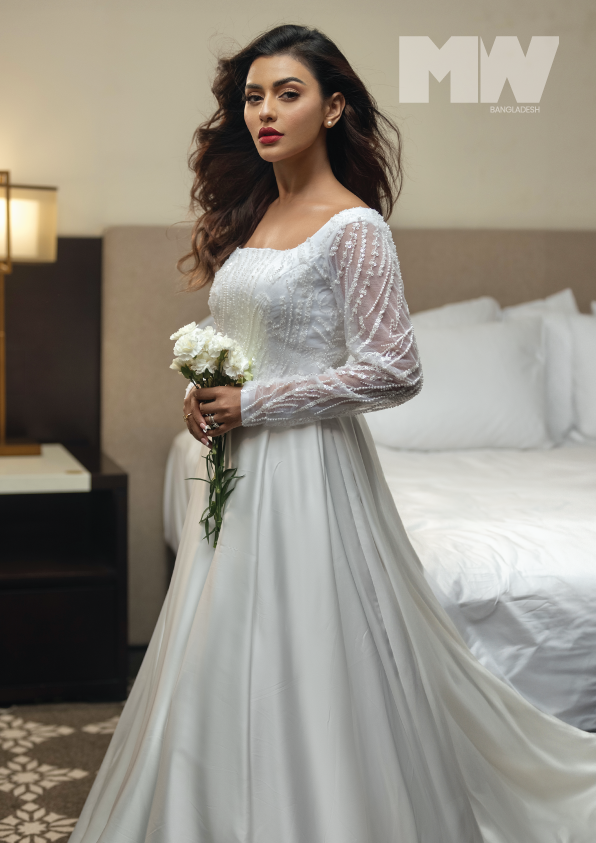
What sparked your interest in studying law?
As I was already a seasoned debater and was good at debating, everyone suggested I should study law and aspire to become a lawyer. I also found myself drawn to this subject and thought this subject would be a good fit for me. So, this is how I got into the field of law, and pursued my studies. Given the present circumstances, I think I’m doing well for myself.
How did you get into Radio Jockeying (RJing) and what did you learn from the experience of RJing?
At first, I started my career as a video jockey when I was 14 or 15 back in 2010, right after my Secondary School Certificate (SSC) exam. Then I started getting offers from BTV and slowly I shifted my focus to other TV channels such as Mohona TV and RTV as a VJ. I started gaining a little bit of popularity on television from there and later, I got into modelling. I worked in TV commercials for popular brands such as Fair & Lovely and Mentos at a very early age.
As I was a fresh face, everybody wanted to work with me. But later on, I started to look for another job, which is more stable and permanent. And voila! I was fortunate enough to get in touch with an amazing RJ named Sajeeda and asked if she would help me get a job.
She was like, “Of course! Why not?” Sajeeda Apu was the person who introduced me to this radio sector and I was fascinated by the entire platform. Then we started to brainstorm and came up with the shows On Air Night Shift With Nusrat Faria, LoveBuds – The Premer Khocha, and you know the rest is history.
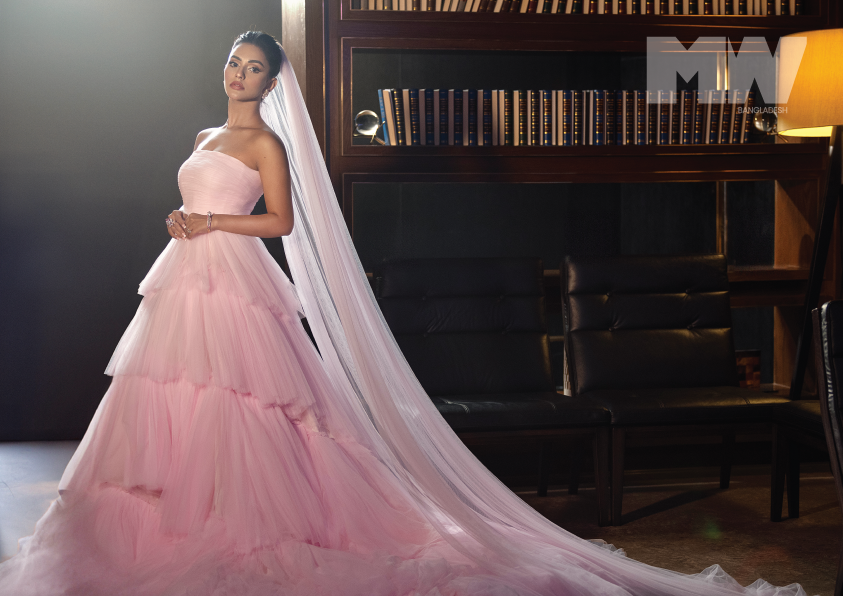
What I learned as a radio jockey is that you don’t need much to leave a mark on people’s hearts. All you have to do is just be yourself and honest. This is how everything worked out for me: I have been honest with myself, my job, and my listeners. I remember I used to do shows on the radio from 12am to 2am and if I was sad, I used to be sad; if I was happy, I used to be happy on the radio. I didn’t put up a false façade.
People would know what was happening in my life just by listening to my voice and they loved it. In short, RJing was a serendipitous journey for me. It all started with a genuine love for connecting with people and a passion for story-telling.
When and how did modelling happen?
As I have mentioned before, modelling happened before I became an RJ. It all started with my role as a VJ or television hosting, then modelling happened and then RJing.
I remember one interesting incident during the early phase of my career. I was supposed to do a TV commercial for a telecom company and my call time was at 6am. My family wasn’t aware of the work I was doing. Unfortunately, I got caught when the car came to pick me up.
My mother didn’t allow me to go and someone else got my role. As far as I remember, the TV commercial was a big hit and I still feel sad thinking I wasn’t able to be a part of that project. There have been many projects like this one but I don’t regret it as I believe whatever happens, it happens for a good reason. So, I am grateful for the work I have accomplished this far.
Was acting a natural next step?
In all honesty, acting was not a natural step. While I was working – whether that be in 2013, 2014, or 2015 – I did every possible show Bangladesh could offer. All the big shows – ICC World Cup, Arijit Singh, Sunidhi Chauhan, A R Rahman – you name it, I did them all.
I feel glad to say whenever there was any big show, my name used to come up as a host. I felt loved and appreciated and then I started thinking about what should be my next step. I knew something big was waiting for me. So, I took a six to seven-month break to think things through.
I was getting a lot of movie offers but I was just waiting for the right script. And then, Aashiqui: True Love (2015) came along. So, after the movie it occurred to me that acting comes naturally to me and I don’t have to struggle much. It was something that I always had within me.
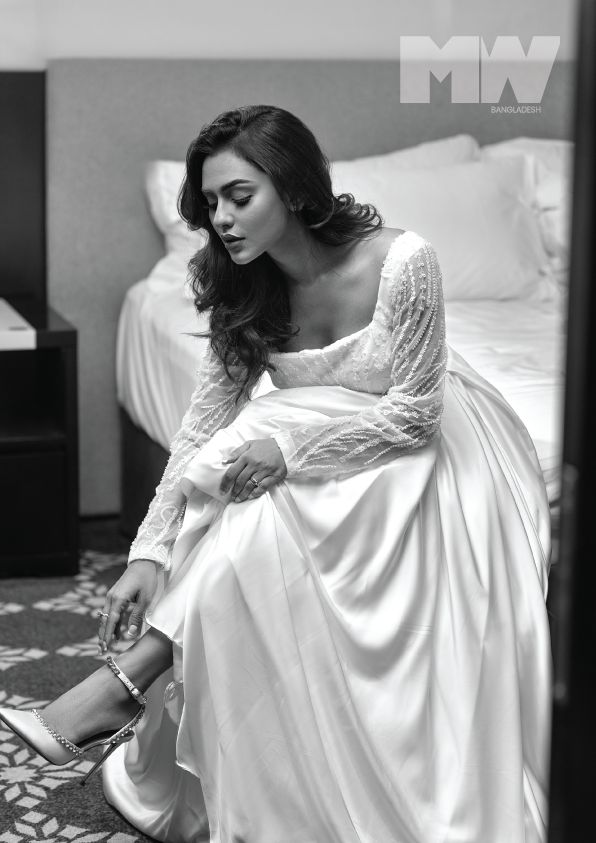
Who were your mentors and icons in these fields?
I am grateful to so many people throughout my career. But initially, my friends were my mentors. My ex-partner was my biggest mentor throughout my entire journey. He guided me in the right direction as he may not be experienced in this field, the media industry, but he is experienced in life. Again, one of my closest friends in the industry, Dilshad Nahar Kona guided me through a lot.
I believe icons should be someone in your life from whom you can learn and apply those lessons in your life. So, my icons would be the people who are closest to me and I look up to. There are many people who are famous and successful but I might not be able to relate or look up to them because they may not have the same psychological or financial status as me or may come from a different background.
Rather, I would look up to the people with whom I can relate and learn valuable lessons. In essence, my journey has been shaped by a mosaic of influences and each has contributed to the artist, professional, and individual I am today.
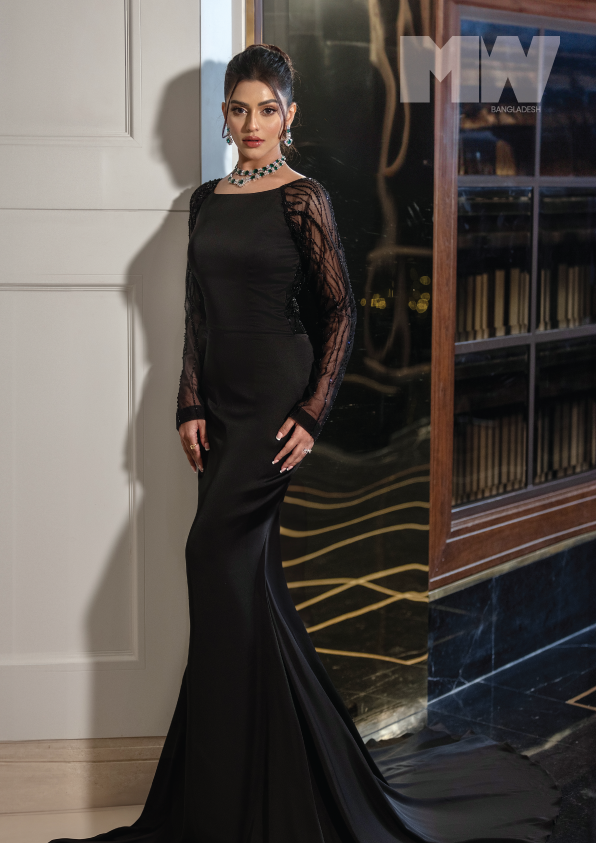
Let us talk about your role in Mujib. How did you prepare for the iconic role of our Prime Minister Sheikh Hasina?
I think one of the most remarkable things I have done in my short career is Mujib (2023). In 2019, I was called to the Bangladesh Television (BTV) for an audition. I was instructed to come to the audition wearing a Katan sari.
At 8am, I entered a room where I saw Shyam Benegal along with the rest of the cast and crew, and I had to audition before them. It was a nerve-wracking experience for me, but somehow, I did the audition (me being confident). I spoke eloquently and acted on my part.
Then I left for Sundarbans for the film Operation Sundarbans (2022) where there was no network and no one could get in touch with me. I had to stay there for 35 days and suddenly I got a call. I was informed that I would be playing the role of Prime Minister Sheikh Hasina in the film Mujib. I was so happy that I started to scream frantically – the tiger and monkeys of Sundarbans witnessed my screams!
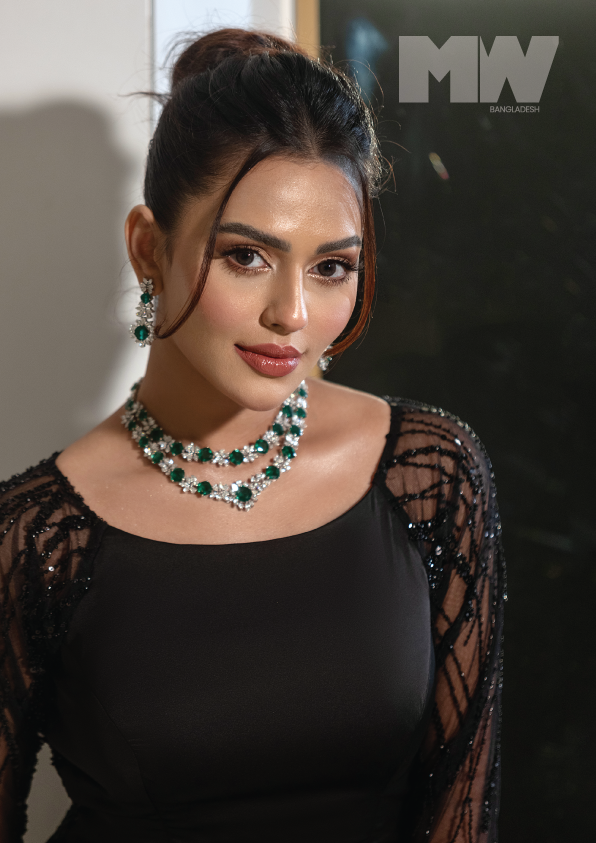
I have waited for one life-changing opportunity in my life and I would say Mujib has been that opportunity. I couldn’t be more grateful for the timing because it was so perfect and right.
I took the preparation for the role of Prime Minister Hasina by believing in the character – living in that moment because this is such a character that nobody has ever played. It was more of a psychological preparation. I wanted to feel the pain of that woman and immerse myself in the journey of that girl. It was essentially more of a personal preparation and I did my best.
What were some of the most interesting takeaways/lessons from your preparation for this role?
The overall experience was so remarkable that I still feel overwhelmed thinking about it. When I used to wake up, I would see the words Hasina written on my vanity and everybody used to be like “Hasina is coming, Hasina is coming” – it was so beautiful! Even as a young generation, we look up to her. The strength she has shown and the hardship she went through is utterly inspiring.
I believe Hasina lives in every girl and the chance to play her is a once-in-a-lifetime opportunity I have received, and for which I am immensely grateful.
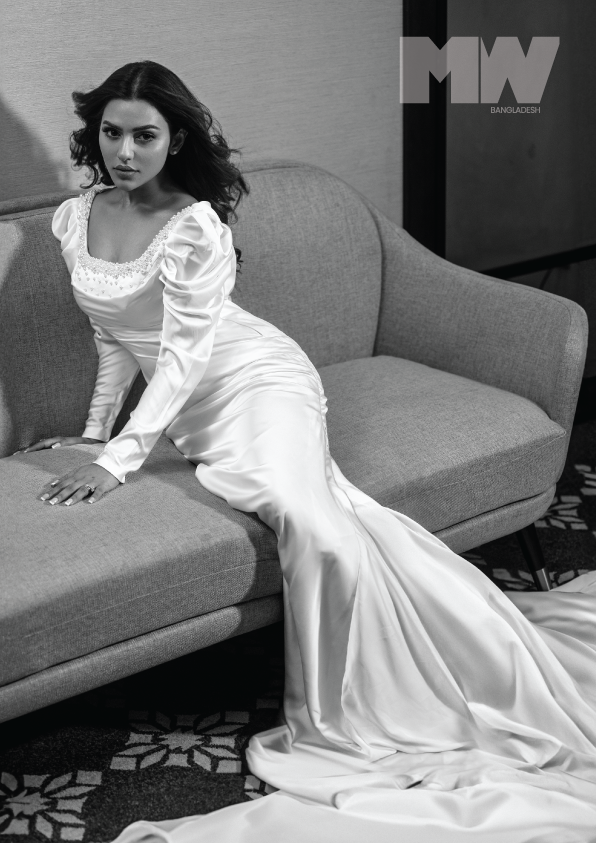
As someone who has worked in both Bangladesh and Kolkata, how do you perceive the differences in the entertainment industries of the two countries?
This is a question I am tired of answering and honestly, there is no difference. I believe the industry is not different, rather the people in the industry are different. Then again, different industries will have different types of people and it is very normal.
Can you highlight a turning point in your career that significantly impacted your journey in the film industry?
I would say the turning point in my career came when I started to venture towards different types of work. At one point, I did commercial movies and at the same time, I also acted in off-track movies. I also joined the singing community and made music videos.
Being a versatile actor is so important when it comes to standing out among the crowds. Of course, movies brought me recognition but I felt like I needed to do something different. So, I started making music content. Starting from the visuals to the lyrics, I was invested in everything and altogether, it changed the dynamics and flow of my career. I became someone who can do it all. So, these changes and risks have made all the difference.
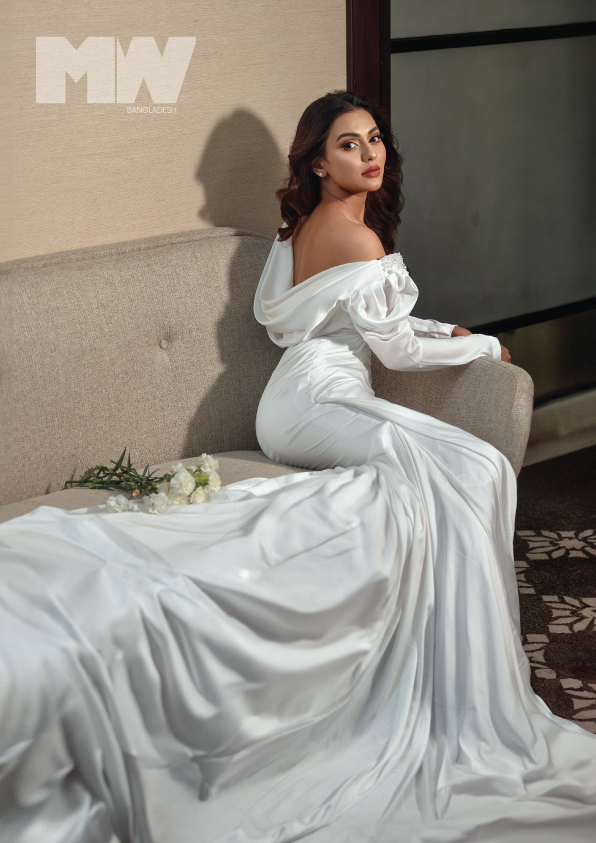
You are a versatile entertainer. Can you share a few suggestions for our readers on how to develop diverse sets of skills?
I think everyone needs to explore the latent talent or skills they have. You need to explore different parts of yourselves, what you can do or skills you can develop. In this fast-paced world, we need to become versatile. Everything is going digital now as you can see – big screen is still there but people are more into phones or other digital platforms.
We need to be more open-minded, broaden our perspective, and be more accepting towards the world – the diversity that exists among us. As a versatile entertainer, I first accepted that I could be a dancer, a singer, an actor, and an RJ. So, when I started accepting myself, the world started accepting me as well.
What influences your fashion choices, both on and off-screen?
I would say my personality is very sassy. So, I choose outfits which I believe will look good on me. Also, I believe that my clothing styles say a lot about my personality. So, based on this, I choose my outfits.
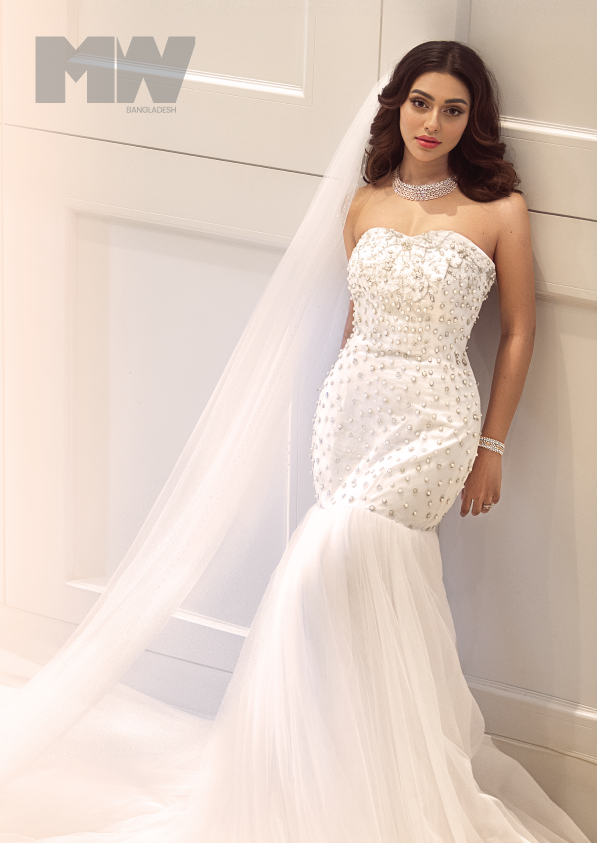
In the songs “Ami Chai Thakte” and “Bujhina Toh Tai,” your fashion choices are quite notable. Can you share insights into how you collaborate with stylists or choose outfits that complement your personality and the mood of the music you’re involved in?
I work hard and sincerely on my music videos. For about one year, I prepared for “Ami Chai Thakte” and I was a huge fan of Blackpink, BTS and K-pop. So, most of my outfits were inspired by this genre.
When I did “Bujhina Toh Tai,” I was inspired by the Coachella outfits. I am into this type of styling and fashion as well. Above all, I listened to the music again and again to make sure the tune was playing in my head and I played that part well. I spoke to my stylist who is from India and we created the look together.
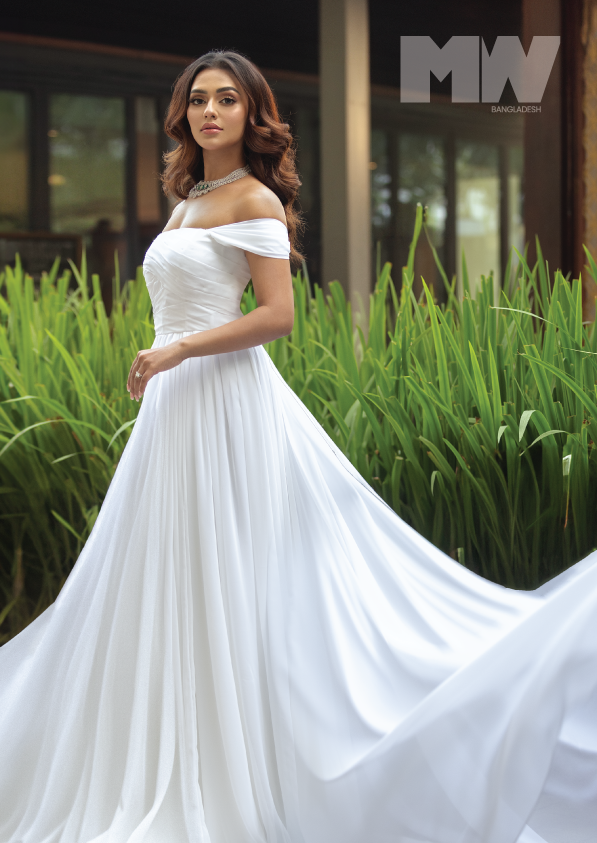
Can you share your thoughts on the evolving role of women in the entertainment industry, particularly in South Asia?
I think women in our industry should start to believe that they can do a lot of things and accomplish a lot of feats. The prime minister of our country is a woman, so I believe it is irrational, unacceptable, and sad to suppress the female population.
In this male-dominated industry, we need to create opportunities for women to express their voices. It is our responsibility to start a movement, invent, and explore different types of genres. Essentially, we need to come out of patriarchal norms and start thinking independently. Otherwise, the scenario will remain the same.
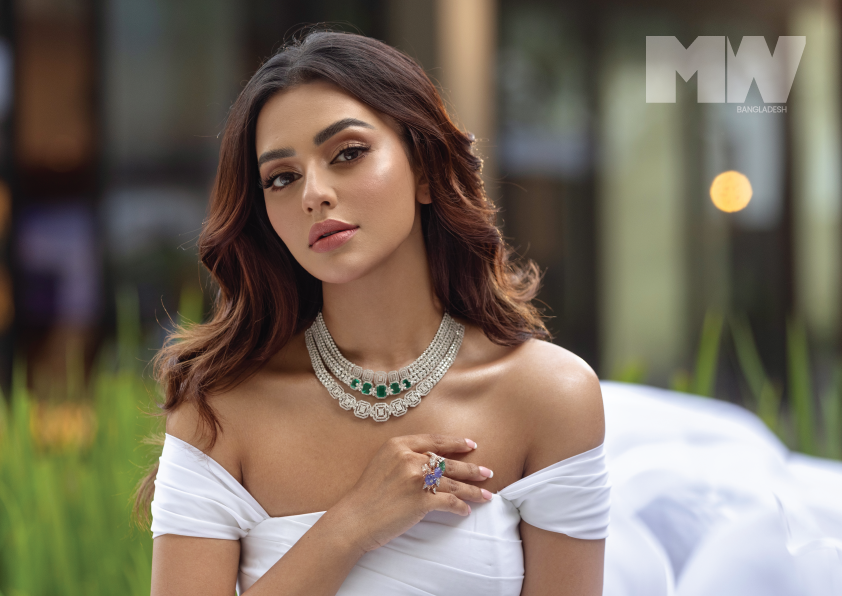
What advice would you give to aspiring actors, especially those looking to navigate multiple facets of the entertainment world?
I would advise aspiring actors or people who want to work in this industry to remain positive, sincere, and honest with their work. I believe in my decade-long career – no matter whether it was hosting or acting – my honesty worked out for me rather than my talent.
It is all about how you present yourself, how confident you are and how honest you are being with your work.
Are there any upcoming projects or genres you are excited to explore in the future?
There are a few upcoming projects in the pipeline. One of my movies is supposed to be released next year in March and I have signed two movies. So, let’s see where everything goes!
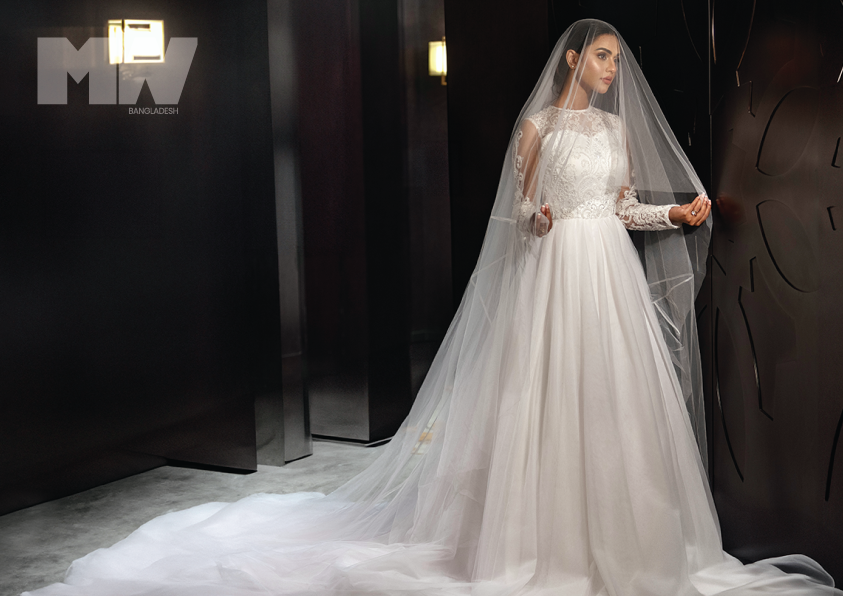
How do you stay connected with your fans, and what role do they play in shaping your career choices?
My connection with my fans is social media and I stay very true to them. I try to be myself and present myself just as I am on social media platforms. So, I try to portray the real picture and make sure there is no false façade.
- mwhttps://mansworldbangladesh.com/author/mw/
- mwhttps://mansworldbangladesh.com/author/mw/
- mwhttps://mansworldbangladesh.com/author/mw/
- mwhttps://mansworldbangladesh.com/author/mw/





